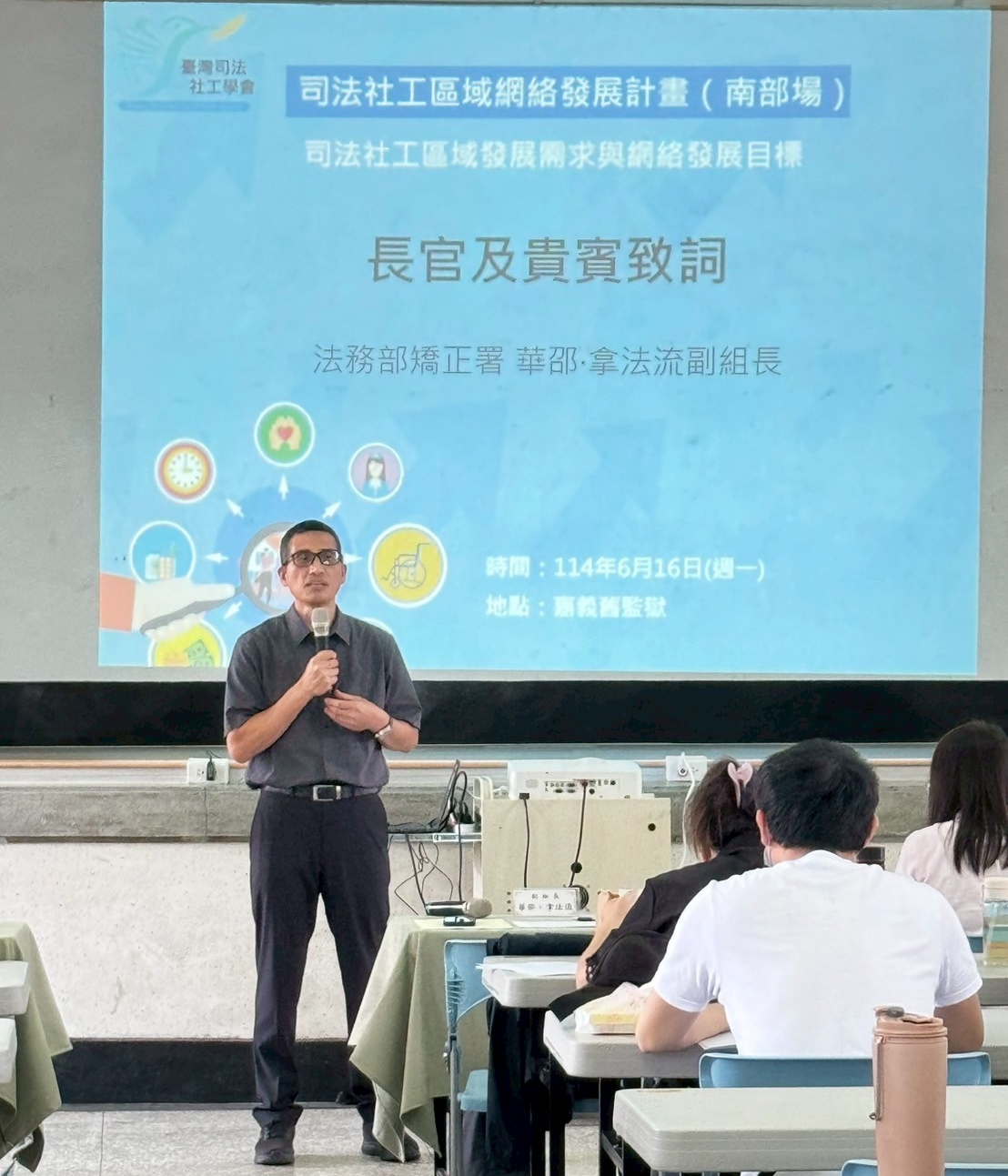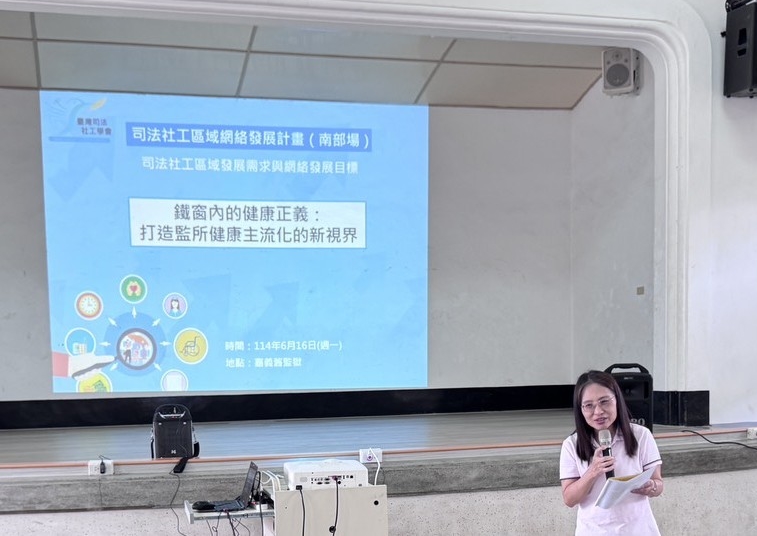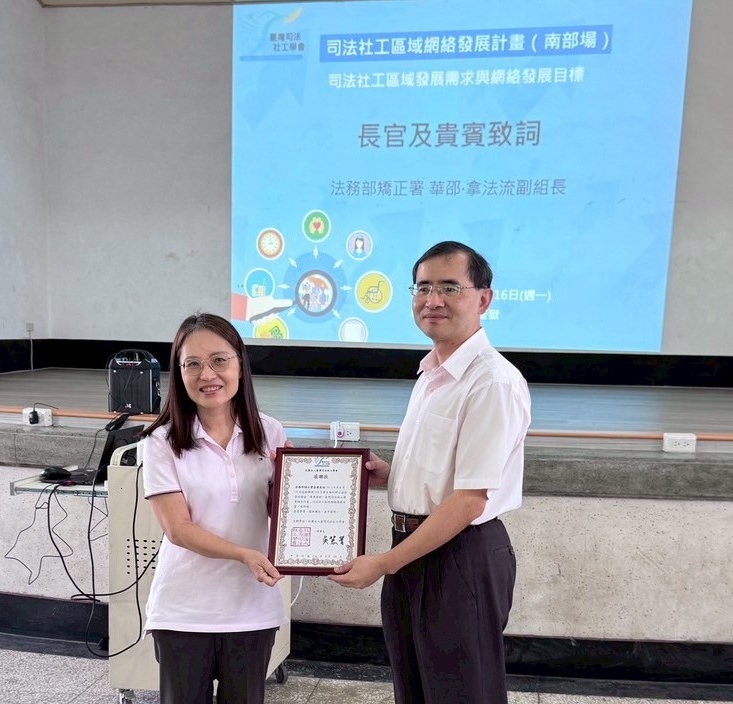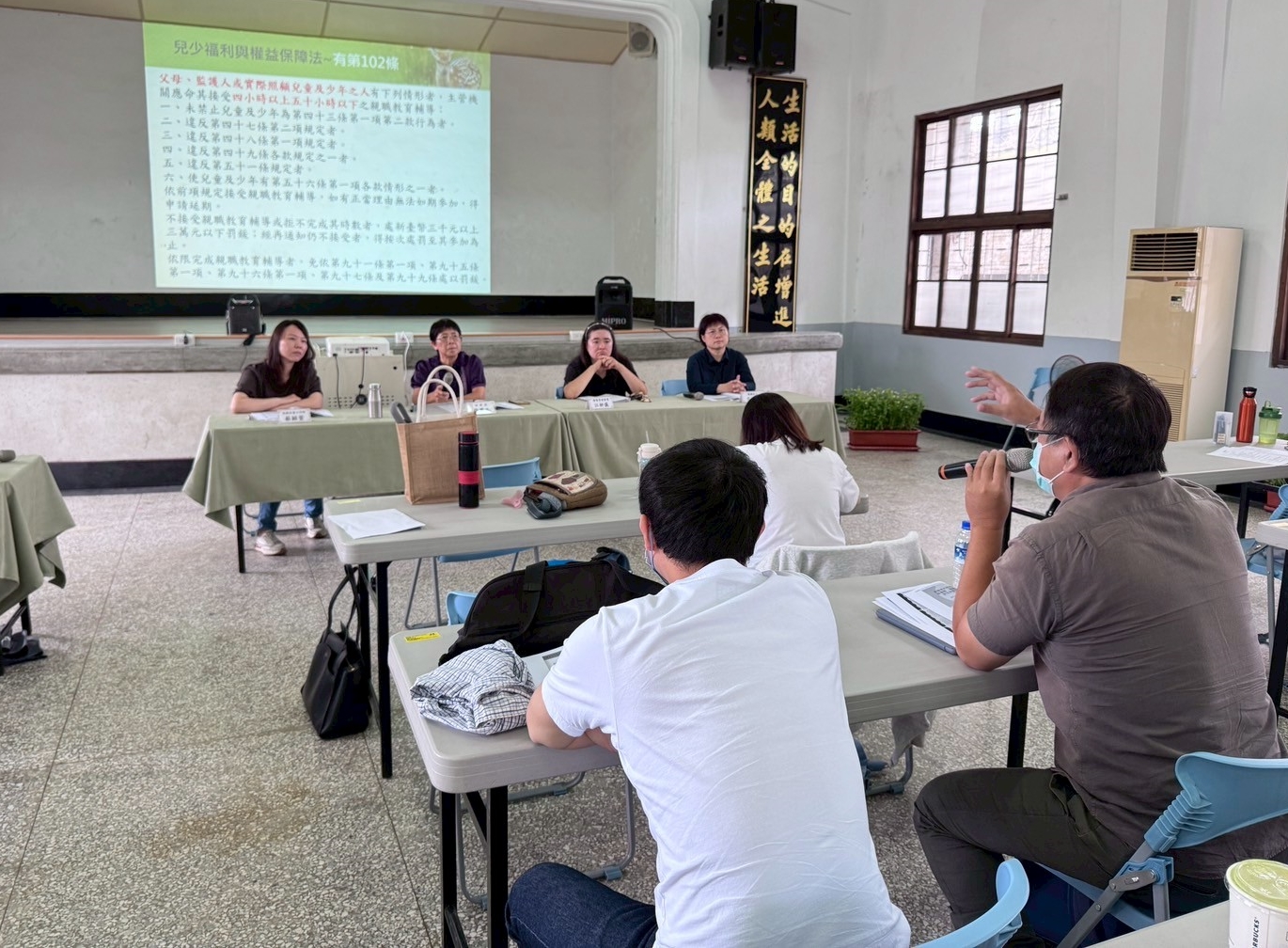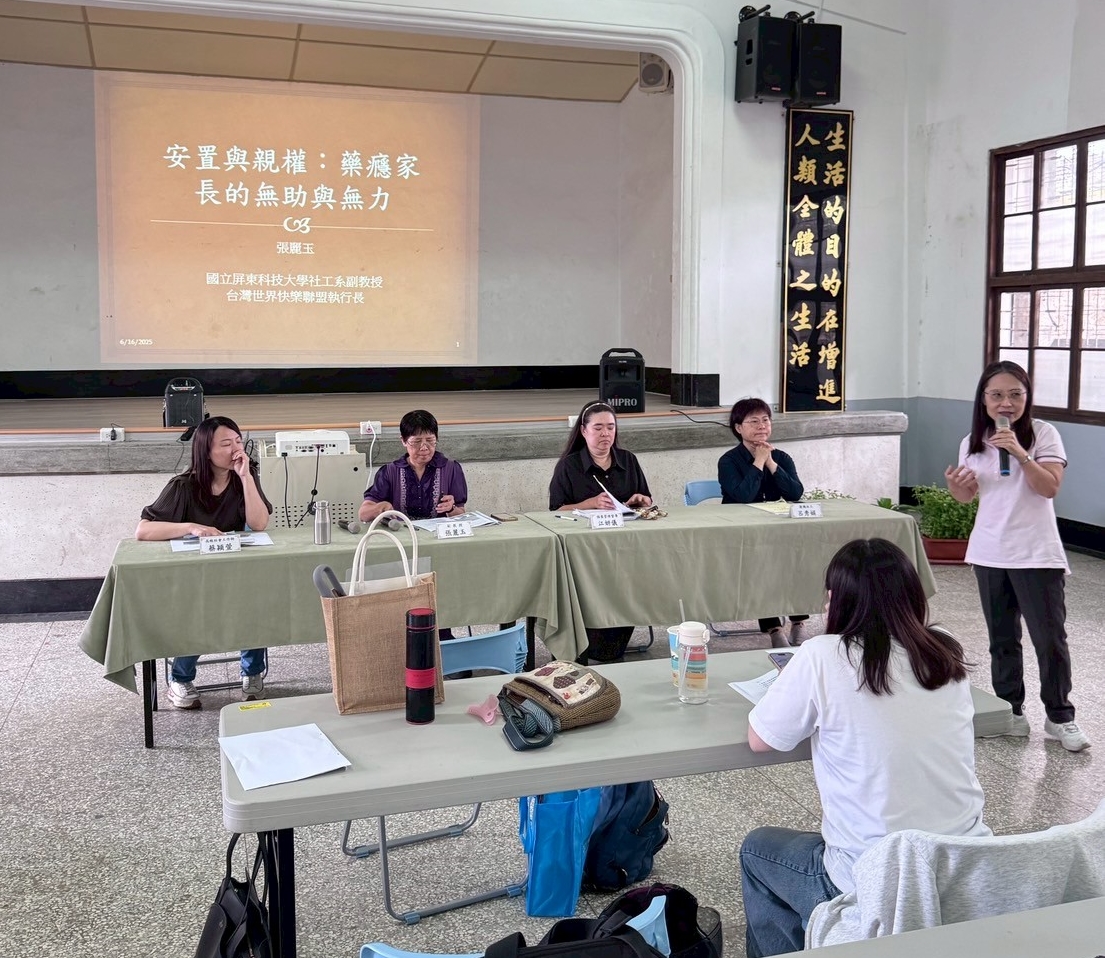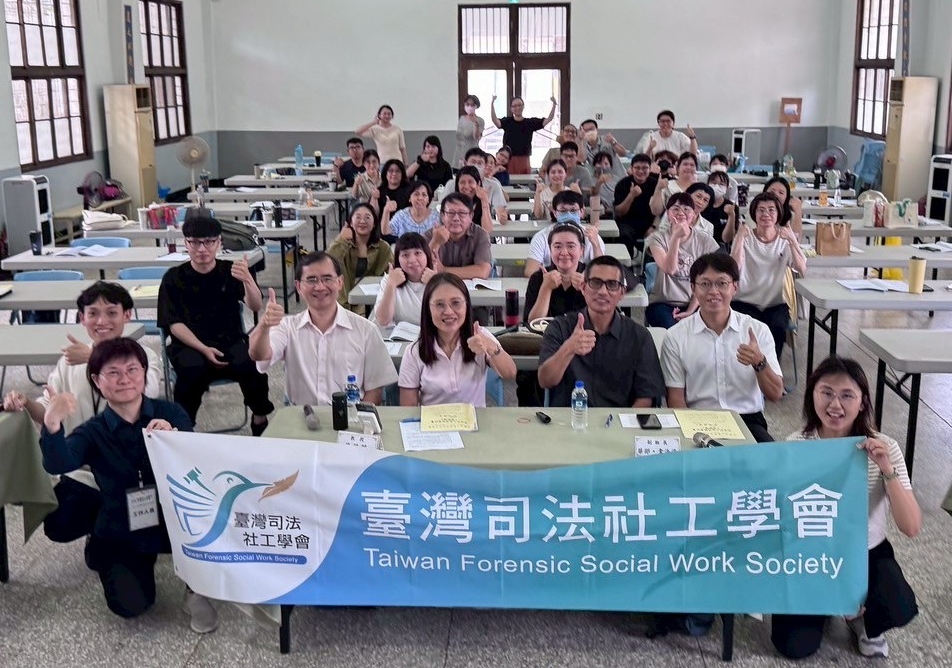From Social Margins to Behind Prison Walls: Supporting the Disadvantaged and Promoting Inmate Health through Forensic Social Work
- Publication Date :
- Last updated:2025-06-16
- View count:208
Both children placed in institutional care at the margins of society and incarcerated individuals within prison walls require more comprehensive, systematic, and interdisciplinary support. To address these needs, the Taiwan Association of Forensic Social Work, in collaboration with the Chiayi Prison of the Agency of Corrections, Ministry of Justice, hosted the Forensic Social Work Regional Network Development Project on June 16, 2025, at the Rixin Hall of the historic Chiayi Prison. The forum focused on two pressing issues: the challenges of family reunification for institutionalized children and the provision of healthcare and psychological support for incarcerated individuals.
The conference brought together professionals from mental health services, drug abuse prevention, social welfare, and correctional institutions to explore practical challenges and solutions related to “how children can return home” and “how the right to health can be realized in prison settings.”
Professor Wu Hui-Ching, Chairperson of the Taiwan Association of Forensic Social Work, emphasized, “Forensic social work serves as a bridge, offering a second chance to those who have been labeled and overlooked. When society is willing to give people another opportunity, forensic social work becomes the open door.” She highlighted the forum as a demonstration of how forensic social work can transform adversity within institutional constraints and underscored the necessity of cross-sector collaboration.
Associate Professor Chang Li-Yu, Chair of the Department of Social Work at National Pingtung University of Science and Technology, further noted, “The true value of forensic social work lies in its ability to connect different professional systems and provide tangible support and empowerment for individuals and families.” She stressed that effective integration of local resources in southern Taiwan is key to changing high-risk circumstances and facilitating reintegration. Whether addressing family reunification for children or inmate healthcare, no single system can solve these complex issues alone.
The morning session featured in-depth discussions on the topic of Parental Rights of Drug Users, Child Placement, and Family Reunification. Chiang Yen-Yi, Supervisor at the Chiayi City Drug Abuse Prevention Center, shared that many parents from drug-affected families experience helplessness and guilt after their children are placed in care, noting that society’s trust in them often drops to zero. She quoted many parents saying, “It’s not that we don’t want to be good parents.”
Social worker Lü Xiu-Juan from World Happy Alliance Taiwan and senior social worker Tsai Ying-Xuan from the Chiayi County Social Affairs Bureau presented real-world case studies, revealing how while the placement system protects children’s safety, it often silently shuts the door to family reunification. They called for a shift from static labeling to dynamic assessment, advocating for restoring parental rights after treatment and support. With interdisciplinary assistance, families can regain caregiving capacity, making “going home” no longer just a dream. This is not only a human rights issue but also a matter of upholding the best interests of the child.
The afternoon session focused on The Right to Health for Inmates and Suicide Prevention Measures. Deputy Warden Chung Chih-Hung of Chiayi Prison emphasized, “Inmates should not be treated as people abandoned outside the constitutional protection of basic rights. According to the World Health Organization, inmate healthcare should be integrated with community medical systems, ensuring inmates receive the same standard of care as the general public.” He called for joint efforts between health authorities and correctional agencies to improve inmate healthcare.
Clinical psychologist Liang Chia-Lin and social worker Wang Hung-Min shared a case involving an inmate with repeated suicide attempts prior to incarceration. They discussed collaborative models involving community dialogue, multi-resource linkage, and cross-sector cooperation to provide seamless pre-release and post-release services. Yang Chih-Wei, Supervisor at the Chiayi County Public Health Bureau, affirmed that community mental health centers are capable of supporting some psychological needs of correctional facilities. However, she also noted significant challenges in system coordination and resource mobilization. The organizers hope to enhance horizontal collaboration among medical, psychological, social, and correctional sectors to safeguard inmates’ right to health.
Hua Shao-Na Fa-Liu, Deputy Director of the Correctional Medical Division at the Agency of Corrections, Ministry of Justice, also reaffirmed the importance of forensic social work, stating that correctional institutions will continue to promote cross-sector collaboration with network partners to achieve professional exchange and resource integration. This forum not only marked a further strengthening of the forensic social work service network, but also laid a solid foundation for ongoing interdisciplinary cooperation in the future.


